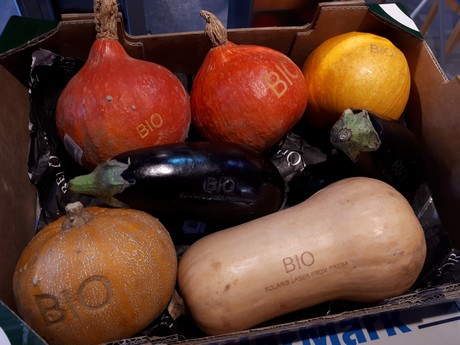
Future
At the Interpom | Primeurs trade fair, Presa did notice that the interest in lasering still remains. "The anti-plastic story is currently very much in the news, and perhaps the introduction of the laser was too early at the time," says Sofie. "Recently I went to a Delhaize supermarket where they had used a bio-laser to laser pumpkins. This does indicate that lasering is something that has a future." The lasering is very product specific, and it is important to see for each product what the influence of lasering is. Lasering does not affect taste and food safety. It only affects the shelf life when the product is less suitable for lasering.
Organic
"Although there is interest in the laser from the whole fruit and vegetable sector, most interest comes from the organic sector. As an organic company, you want to show that you are credible and then packaging is often a difficult issue. Lasering is a very good alternative for this and the possibilities here are unlimited", continues Vandereycken. In addition to lasering, the packaging industry is also looking for options to move away from plastic. "We do this by looking for alternatives for foils. Yet every material has its own characteristics and that is why there are different alternatives on a case-by-case basis. In addition, the question arises as to how consumers deal with this and whether they will notice that a different material has been used. It is therefore good to also make the consumer aware and to look for new packaging options."
Portable printer
In October Presa introduced two new machines at the Empack, a portable Linx small character inkjet printer for start-ups with the wish to automate. It is a portable 11 kilo entry-level model that is easy to move around. It is ideal for companies with, for example, two production lines where they can use this device alternately according to the coding requirement. "In addition, we have introduced a Leich & Mehl price-weighing labeling machine that applies the label with the price and weight. This machine is very suitable for trays of fruit and vegetables, but also for convenience products such as ready-made meals. It is also a fast machine that is very suitable for large production lines", Sofie concludes.







